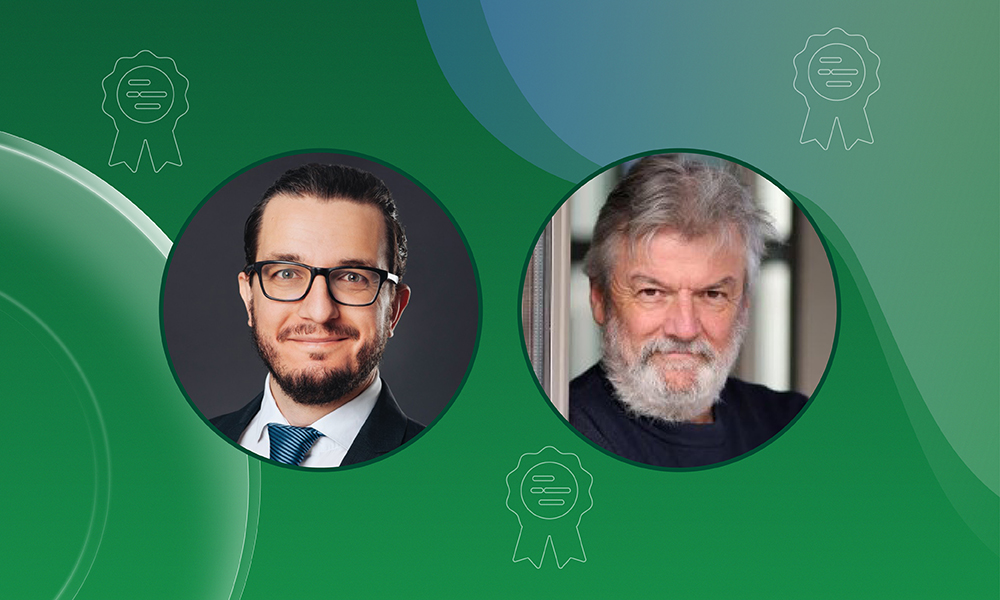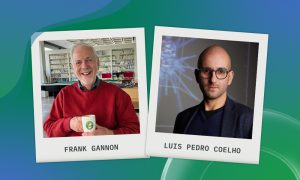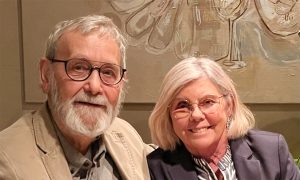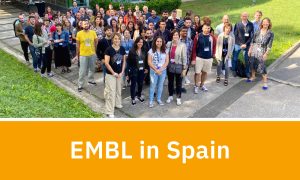
EMBL Alumni Awards Announced for 2023
Two former EMBL scientists have been recognised for their outstanding contributions to the fields of science communication and multiple sequence alignment research, respectively

By Tom Furnival-Adams, Alumni Relations Officer
The winners of the 2023 EMBL Alumni Awards have been selected.
Veli Vural Uslu has received the 2023 John Kendrew Young Scientist Award in recognition of the excellence of his science communication career, while Des Higgins has been awarded the Lennart Philipson Award in recognition of his major contributions towards enabling bioinformatics technologies based on multiple sequence alignment.
The awards will be presented as part of the EMBL World Alumni Day celebrations, which will take place at EMBL Heidelberg on Friday 7 July 2023 (EMBL Lab Day) in hybrid format. Registration is free and open to all EMBL staff and alumni.
Veli Vural Uslu completed his PhD in the Spitz Group at EMBL Heidelberg from 2009 to 2015, including a short stint as a bridging postdoc. Today, he is the writer, director, and organiser of various science-themed theatre plays, and the founder of TAP (The Awesome Potatoes) Science Theater Heidelberg, where he has trained and worked with 70 scientists from 34 countries since 2015.
Uslu has also served as the director of Mosaic – where he explains plant-virus interactions through dance, performed science-based stand-up comedy around Europe, trained staff in science communication at several institutes and written regular columns in Turkish local and national newspapers for an audience of millions. In 2018, he won the FameLab Germany National competition and became runner-up in the FameLab world final in England.
“As the recipient of the John Kendrew Award, I am grateful for the recognition of performance art in science communication, not only as an educational stage for scientists to share their research and enthusiasm with society but also as a sanctuary for scientists to protect their mental health – especially after leaving EMBL,” Uslu said. “Feeling the support of the EMBL community makes me very happy and more motivated than ever for exploring unorthodox yet effective ways of making science accessible to the public.”
Des Higgins, who joined the EMBL Data Library in 1990 and then worked as a postdoc and staff scientist at EMBL-EBI from 1994 to 1996, is the primary creator of the Clustal package for multiple sequence alignment, a groundbreaking technology in this area of bioinformatics. After leaving EMBL, Higgins taught Biochemistry at University College Cork in Ireland from 1997 to 2003. He was Professor of Bioinformatics at University College Dublin until his retirement last year.
Clustal was the first software that enabled scientists without any prior bioinformatics knowledge to perform multiple sequence alignment on any computer. The technology was freely shared with the world from day one, and allowed advances in many fields, from evolutionary biology to cancer research and vaccine design. Over the years, Clustal has been updated many times by Higgins and his collaborators and has contributed widely to advancing scientific research.
“I spent 35 years working on sequence alignment methods,” Higgins said. “The environment at EMBL gave me the opportunity to develop this work and to collaborate with Toby Gibson and Julie Thompson to make Clustal W and Clustal X. It is over 30 years since I first met Lennart Philipson at EMBL and it is a great honour to receive the award.”
Nominations and applications for the 2024 John Kendrew and Lennart Philipson Awards and the 2025 Kafatos Lecture are now open. Please click here to find out more and submit a nomination or application.
Further information and registration for World Alumni Day 2023 will be available soon.


